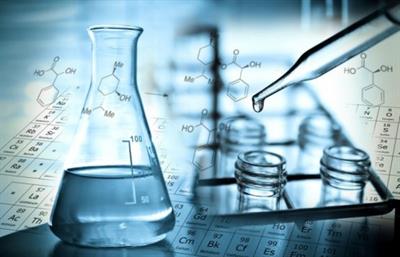Just How Chemical Products Are Changing Various Industries Worldwide
Just How Chemical Products Are Changing Various Industries Worldwide
Blog Article
Secret Considerations for Selecting the Right Chemical Products to Accomplish Efficient Integrated Solutions in Your Workflow
Choosing the proper chemical items for incorporated solutions in procedures calls for a multifaceted approach that encompasses various important factors to consider. From analyzing chemical compatibility to ensuring adherence to regulatory criteria, each variable plays an essential function in optimizing operational performance and safety and security.
Understanding Chemical Compatibility

To evaluate compatibility, one ought to take into consideration factors such as the chemical buildings of the substances involved, including pH, focus, temperature level, and the presence of impurities. Using compatibility charts and databases can give valuable insights into potential interactions. Additionally, carrying out small-scale examinations can assist recognize unforeseen reactions that may not be documented.
Factors such as moisture, light exposure, and temperature level can influence the security and reactivity of chemical items. By prioritizing chemical compatibility throughout the selection procedure, companies can improve functional efficiency, lower the risk of crashes, and ensure conformity with safety procedures.
Reviewing Regulatory Conformity
In the complex landscape of chemical product selection, evaluating regulatory compliance is vital to making certain not only security yet additionally legal adherence. Organizations should browse a myriad of laws, from local and national legislations to global criteria, that control the usage, storage, and disposal of chemical compounds. This requires a complete understanding of relevant laws such as the Occupational Safety And Security and Health Administration (OSHA) standards, the Epa (EPA) guidelines, and the European Union's Enrollment, Analysis, Authorisation and Constraint of Chemicals (REACH)
When picking chemical products, it is necessary to verify that providers offer Safety Information Sheets (SDS) that information prospective risks and handling needs. In addition, services ought to verify that the chemicals follow industry-specific guidelines, which may enforce additional specifications. Non-compliance can cause extreme charges, consisting of fines and functional closures.
Additionally, companies should stay upgraded on regulatory modifications, as non-compliance can arise from out-of-date techniques. Establishing a durable compliance method, consisting of regular audits and worker training, can aid ensure adherence to present laws. Ultimately, prioritizing regulative compliance not just minimizes threat but likewise improves the company's online reputation and functional performance.
Assessing Environmental Impact
How can organizations successfully examine the ecological influence of chemical items during the choice process? An extensive examination needs a diverse method, integrating data explanation on the life cycle of items, from manufacturing to disposal. Organizations must begin by identifying the potential hazards linked with each chemical, consisting of toxicity, perseverance in the atmosphere, and bioaccumulation potential. Making use of tools such as Security Information Sheets (SDS) and ecological risk analyses allows a clearer understanding of these best site variables.
Furthermore, companies can leverage third-party accreditations and eco-labels that show compliance with environmental requirements - Chemical Products. Involving with suppliers who focus on sustainability techniques can also improve the choice procedure. It is crucial to evaluate not only the straight results of chemical use yet also the indirect impacts, such as energy usage and waste generation
Carrying out life process analysis (LCA) techniques can provide comprehensive insights right into the ecological impact of chemical items, highlighting locations for enhancement. By prioritizing transparency and collaboration with stakeholders, organizations can make informed choices that straighten with their sustainability objectives while decreasing damaging ecological results. This positive method ultimately cultivates an extra accountable and eco-conscious operational framework.
Analyzing Cost-Effectiveness
While evaluating chemical items for operational use, companies have to likewise take into consideration cost-effectiveness as an essential aspect in the option procedure. This entails examining not only the initial purchase rate however additionally the overall expense of ownership, that includes aspects such as use efficiency, maintenance, and disposal costs. Chemical Products. helpful site An item that appears economical upfront may incur higher prices in power intake or require even more regular replacement, ultimately influencing the lower line
Furthermore, companies need to analyze the potential for expense savings via optimized formulations that improve efficiency and reduce waste. Items that need lower application prices or offer faster handling times can lead to significant cost savings over time. It is additionally important to take into consideration the influence of regulatory compliance prices, as non-compliance can cause fines and boosted operational costs.
Furthermore, organizations must review the lasting value stemmed from the chemical items, consisting of improved high quality, boosted performance, and enhanced security. A comprehensive cost-effectiveness analysis equips companies to make educated decisions that line up with both their economic goals and functional goals, inevitably causing sustainable and reliable methods.
Identifying Supplier Reliability
Distributor dependability is paramount when selecting chemical products for operations, as it straight affects both product quality and operational efficiency. A trusted distributor regularly supplies high-quality products on time, making certain that your processes stay continuous.
Next, think about the provider's background of compliance with laws and criteria. A reliable distributor ought to have a durable quality control program that adheres to market guidelines. Additionally, evaluate their capacity to supply technological assistance and item information, which is critical for notified decision-making.

Final Thought
To conclude, choosing the proper chemical items for integrated options demands an extensive examination of numerous crucial aspects. Recognizing chemical compatibility, ensuring regulative conformity, analyzing ecological influences, analyzing cost-effectiveness, and identifying reputable vendors jointly add to notified decision-making. Such a technique not just improves operational effectiveness and security however also reduces potential threats. Focusing on these factors to consider can cause more sustainable and reliable functional methods in various sectors.
Report this page